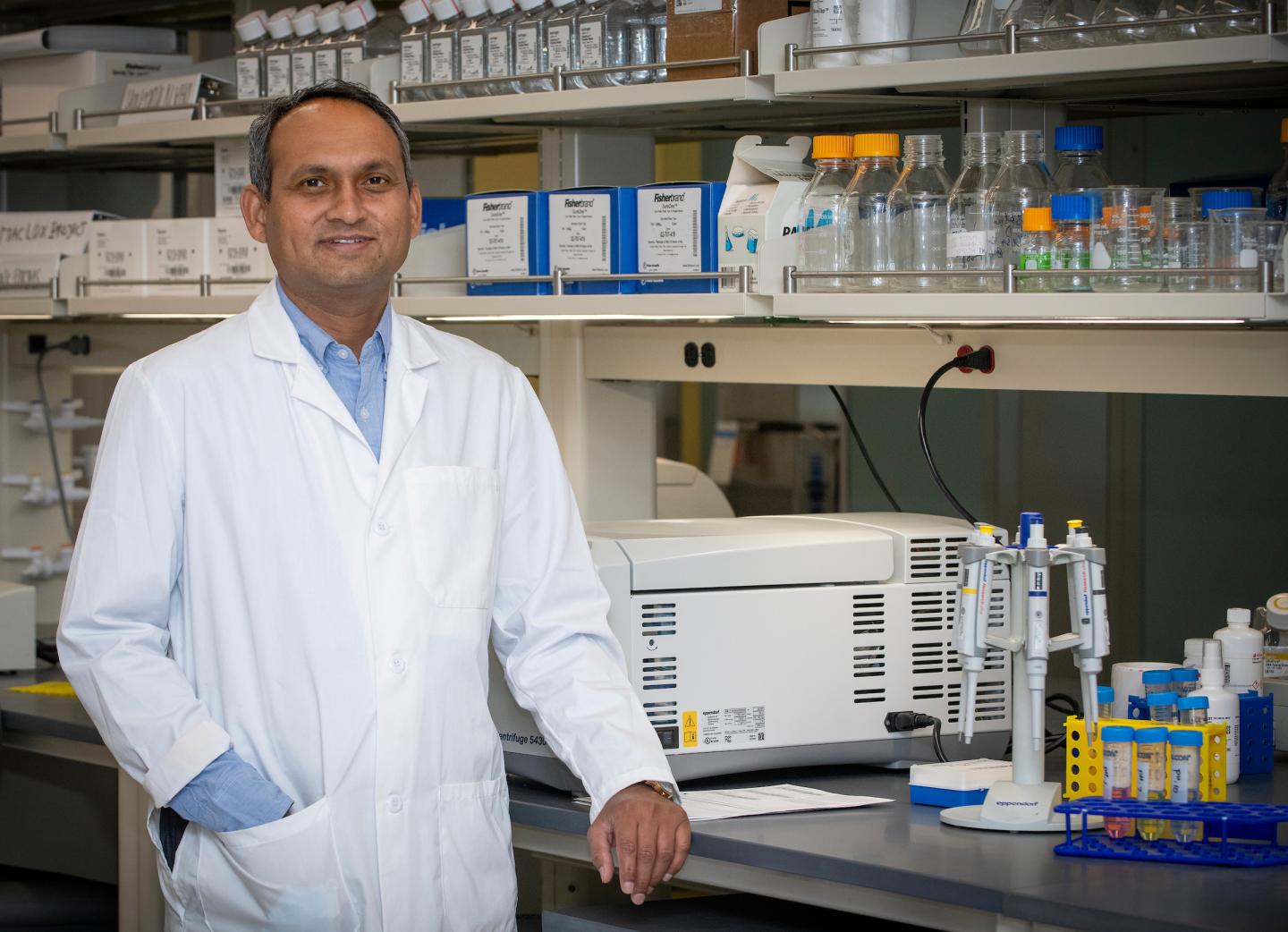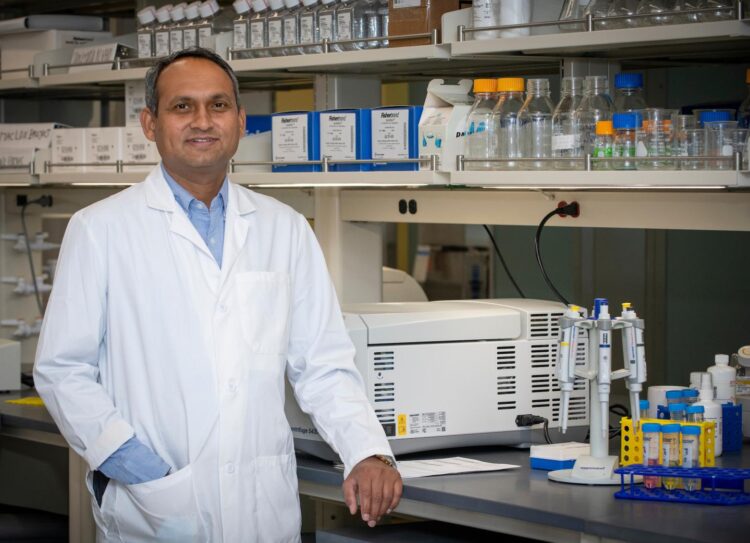University of South Florida Health preclinical study finds that inhibiting lipoxygenase with a drug alters innate inflammatory response, delaying heart tissue repair after cardiac injury

Credit: USF Health/University of South Florida
TAMPA, Fla. (May 10, 2021) — Blocking the fat-busting enzyme lipoxygenase with a synthetic inhibitor throws the immune system’s innate inflammatory response out of whack, compromising cardiac repair during acute heart failure, USF Health researchers found.
Their new preclinical study was published April 13 in Biomedicine & Pharmacotherapy.
Acute heart failure – triggered by a heart attack, severely irregular heartbeats, or other causes — occurs suddenly when the heart cannot pump enough blood to meet the body’s demands.
Following a heart attack or any cardiac injury, signals to immune cells called leukocytes carefully control physiological inflammation. Normally, there are two distinct but overlapping processes: an acute inflammatory response (“get in” signal), where leukocytes travel from the spleen to the injured heart to start removing dead or diseased cardiac tissue, and a resolving phase (“get out” signal), where inflammation is cleared with the help of macrophages that arrive to further repair the damage and form a stable scar.
A delay in either the initiation of inflammation or its timely clearance (resolution) can lead to impaired cardiac healing and progression to heart failure, said study principal investigator Ganesh Halade, PhD, an associate professor of cardiovascular sciences at the USF Health Morsani College of Medicine and a member of the USF Health Heart Institute.
The USF Health researchers applied three investigational approaches (in vitro, ex vivo, and in vivo) to assess whether a potent lipoxygenase (12/15 LOX) inhibitor ML351 could selectively alter inflammatory responses in adult mice following cardiac injury similar to a heart attack. Previous studies by Dr. Halade’s laboratory reported that lipoxygenase-deficient mice showed improved cardiac repair and heart failure survival after cardiac injury.
“We wondered if blocking a lipoxygenase with an external pharmacological compound (drug) would have the same beneficial effect — but the answer was no,” Dr. Halade said. “Instead, the collective results of our study indicate that ML351 dysregulated control of the normal physiological pathway of inflammation in cardiac repair, causing collateral damage.”
In the mice treated mice with ML351, leukocyte recruitment to the site of cardiac injury was delayed, which subsequently amplified inflammation at the site. At the same time, instead of leaving once the repair job was done, the immune cells remained at the site beyond the typical acute (and beneficial) inflammatory response phase. Basically, the late arrival (get-in signal) and delayed clearance (get-out signal) of immune cells impaired cardiac repair, Dr. Halade said.
The latest study helps explain one more piece of the puzzle about the important role of immune-mediated acute inflammation and its clearance – both in promoting cardiac health and stopping the progression of heart failure, Dr. Halade said. Lipoxygenases, fatty-acid modifying enzymes that control metabolic and immune signaling, can promote either resolving (beneficial) or nonresolving (harmful) inflammation, he added.
“The take-home message is do not mess with (block) the lipoxygenase. Preserve it, because it’s a key enzyme for our defensive, innate immune response,” he said. “Knowing how drugs interact with the body’s precisely-balanced immune responses will be critical for understanding mechanisms to prevent, delay or treat the unresolved inflammation influencing heart failure.”
###
The USF Health study was supported by grants from the NIH’s National Heart, Lung and Blood Institute and the National Institute of Diabetes and Digestive and Kidney Diseases.
USF Health’s mission is to envision and implement the future of health. It is the partnership of the USF Health Morsani College of Medicine, the College of Nursing, the College of Public Health, the Taneja College of Pharmacy, the School of Physical Therapy and Rehabilitation Sciences, the Biomedical Sciences Graduate and Postdoctoral Programs, and USF Health’s multispecialty physicians group. The University of South Florida is a high-impact global research university dedicated to student success. Over the past 10 years, no other public university in the country has risen faster in U.S. News & World Report’s national university rankings than USF. For more information, visit health.usf.edu
Media Contact
Anne DeLotto Baier
[email protected]
Related Journal Article
http://dx.





